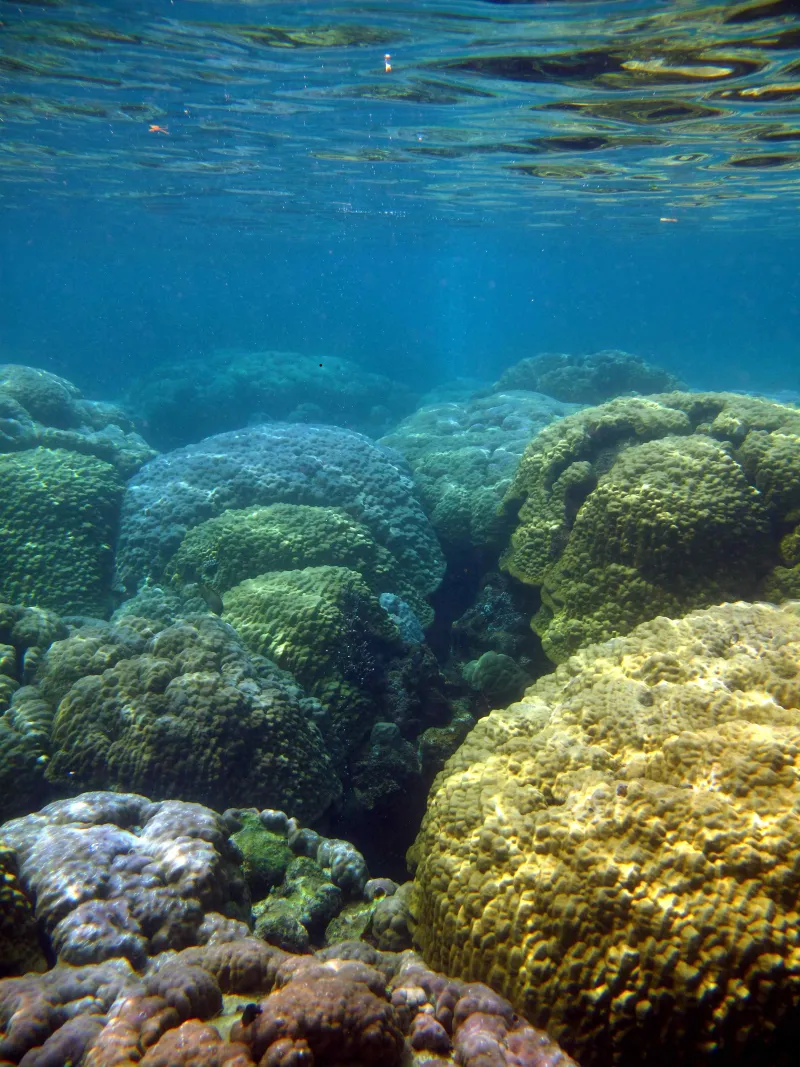Monoculture of Boulder Corals

Close to the volcanic CO2 seeps, the vast diversity of corals that exists in less-acidic waters is replaced by a "monoculture" of boulder corals. These are less fragile and better suited to life in acidic water. Read more about how reef scientist Laetitia Plaisance uses carbon dioxide seeps to study ocean acidification.

